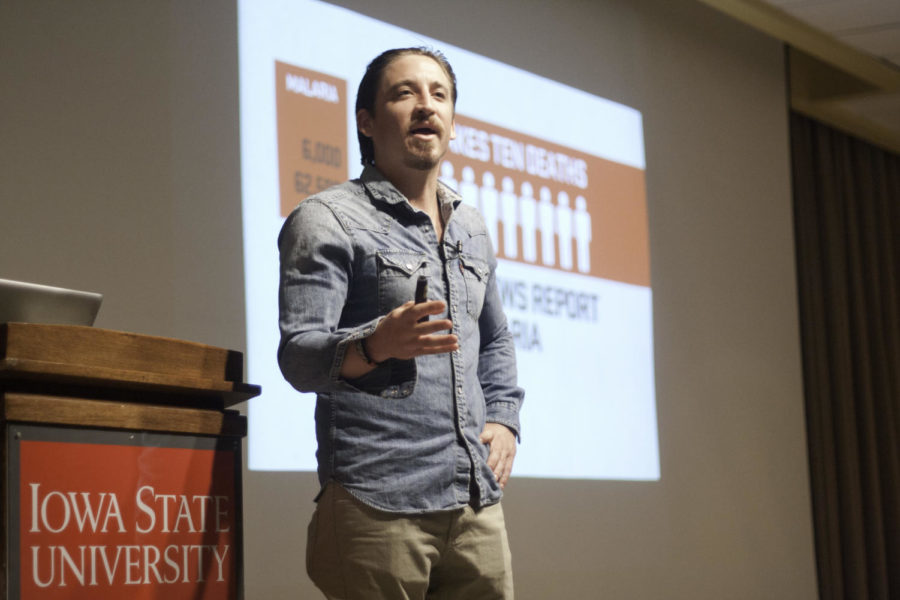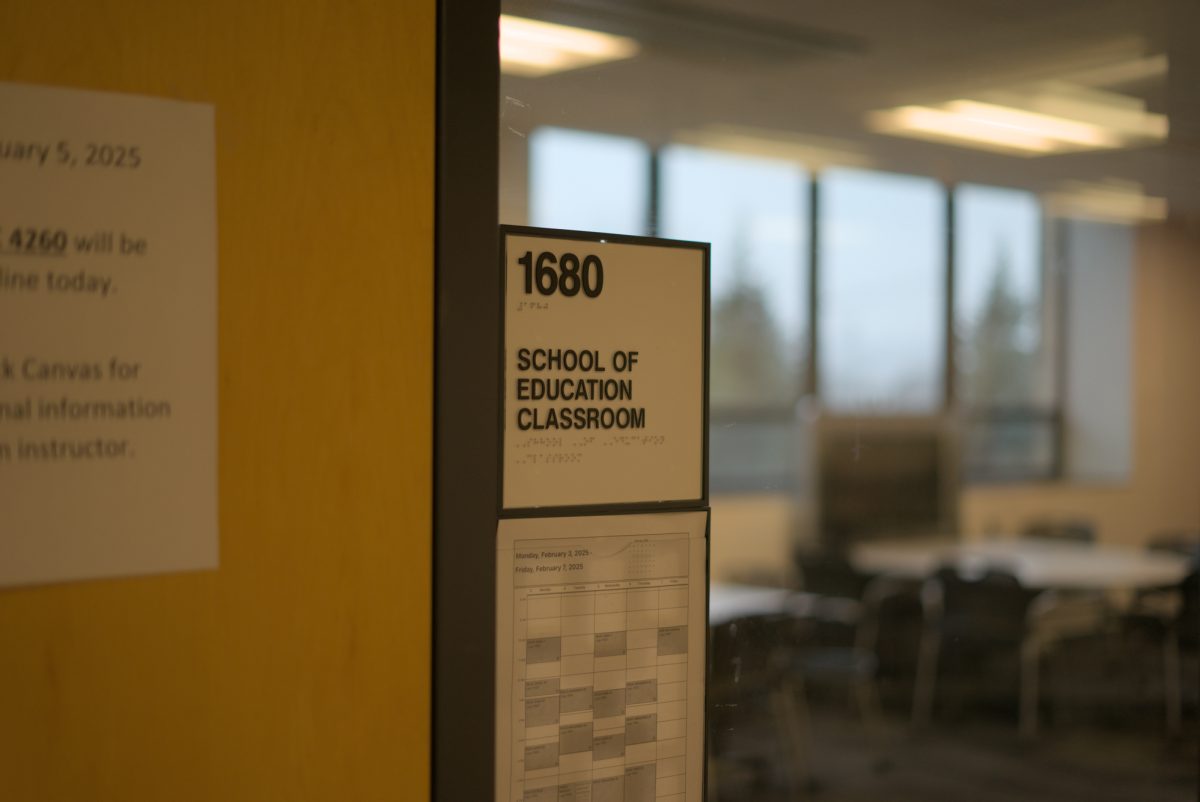Invisible Children co-founder shares experiences of Kony campaign, trips to Africa
Photo: Andrew Clawson/Iowa State Daily
Bobby Bailey, co-founder of Invisible Children, speaks about his experiences in Africa and the challenge of bringing issues to light Monday, April 9, at the Sun Room in the Memorial Union. Bailey spoke about the difference in media coverage of swine flue versus malaria.
April 9, 2012
Monday night, ISU students gathered into the packed Sun Room of the Memorial Union to listen to Bobby Bailey inspire for a greater cause. Baily, co-founder of the Invisible Children nonprofit organization, began his speech with a journal entry of a much younger self during his first trip to Uganda with his two friends Jason Russell and Laren Poole.
“The three of us, Jason, Laren, and myself, went together to make a film,” Bailey read. “The outburst afterword was organic, but there was no structure to our working relationship. We were friends first of all. We were working out who we were as people in our early 20s.”
During their trip, Bailey and his friends experienced rebel fire and bombings and began to understand the process of night commuting. Every night, children would walk to designated safe areas to sleep in order to be spared from kidnapping and rape.
“In an abandoned bus park, dimly lit with blue iridescent light, we saw bodies upon bodies stacked and sleeping,” Bailey said.
Kids as young as 7 years old were sent by their parents every night to walk to this place in order to sleep.
Bailey said in order to make their film happen he, Russell and Poole had to endure: five imprisonments in three countries, two verges of bankruptcy, three potential lawsuits, three years in Africa, countless nights without sleep and fights between each other. They have met with four warlords, four heads of state, numerous senators and parliamentarians, rock stars and celebrities all during 14 tours across the country to spread their message.
“We have been shot at, vehicles were bombed in front of us, and through it all, I wouldn’t have traded the journey for anything,” Bailey said.
Although Bailey left the Invisible Children organization in 2009, he is still involved in the efforts to stop the 20-year war. With the ultimate goal to have Joseph Kony caught and removed from power, the organization and its team will always be a part of his life, he said.
“I’ll say this right now, no one at the organization thought that 80 million people would see the video ‘Kony 2012’ and I think the critiques were really hard for us to deal with because we’ve been with this organization for a long time,” Bailey said.
In order to promote the Invisible Children message, the team had to create a brand that would stand out. Bailey explained their strategy to gain attention was to use “the three Cs”: controversy, conflict and celebrity. They sold products and put half of the profits into the ground work of the organization and half into advocacy.
“How do you engage popular culture into being concerned with sensitive issues?” Bailey asked. “You know those moments where you jump first and fear later? That’s what we did.”
Bailey urged the students to help with the movement and get involved by spreading the message of the “Kony 2012” campaign.
“We are human beings. If a person is in trouble, I want to protect them,” Bailey said.







